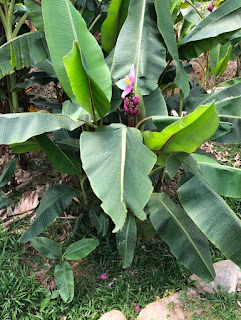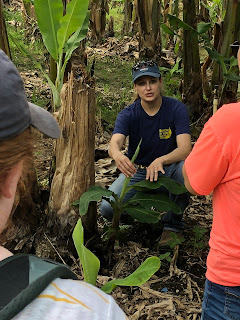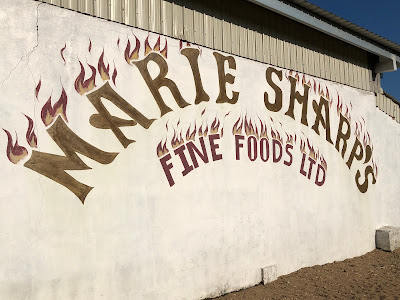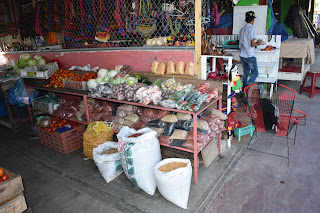Agriculture wears a lot of different hats. It looks different across the world. It is based in culture, tradition, and the importance of providing for, and serving others. Traveling to Belize was a reminder of the impact agriculture has. A reminder of it's overall importance.
In the United States, agriculture is oftentimes an afterthought. For the most part, we are fortunate enough to be food secure, and for many people, the thought of where their food comes from stops at the grocery store. Most people are generations removed from the farm, therefore creating a disconnect between farmer and consumer.
 |
| Agriculture looks a lot different in Belize! |
In Belize, we saw the importance of agriculture from the start of our trip. We saw how agriculture spread its roots in Mayan culture, in Mennonite culture, and beyond. One of the things that stood out to me, was the Mayan people and their dedication to their land. People historically would walk up to two hours
JUST to get to their farms, and everyday would continue to farm.
I think in travel it's easy to look at just the differences between here or there. But differences don't bring people together. As the trip continued, I realized that even though agriculture looked different, that we all had similar concerns that impacted our industry. In both the United States and Belize, the average age of farmers continues to get older. We talked with local farmers about the uncertainty of who will take over their farm, and what will be left behind. We also discussed how the general outlook towards agriculture prevents people from wanting to involve themselves in it. Oftentimes, agriculture is seen as unappealing, something that is a last resort. It makes things difficult in bridging the age gap between the younger, and older generations.
As a future teacher, I hope to always remember to focus less on the differences, and embrace the similarities between experiences, cultures, and people. I think if we're always thinking with an "us vs. them" mentality, we can't build a connection with students. I think that's why traveling is so important. In class leading up to our departure, Belize to me was in my mind as somewhere far away. The places we talked about weren't concrete or real. It was easy to talk about agriculture, or education in Belize from afar, because we weren't made aware of the intricacies that exist from up close. Essentially, we had very limited indigenous knowledge about Belize, and the people who lived there.
Traveling makes the indigenous knowledge known, and although we'll never be experts in it, we'll at least be made aware of it. That was the entire point of #TeachAgBelize. I mean, the official class name is "Indigenous Knowledge in Agricultural Education"so I guess that makes sense. It's funny how things really come full circle when you take the time to really process your experience.
I am thankful for this experience, and for the opportunities that I have as a Penn State student. This trip would not have been possible without Dr. Miller-Foster, Dr. Foster, Dr. Ewing, Dr. McCubbins, and CELA Belize (especially Lauren and Jorge who were with us from start to finish), and I'm thankful for all that they did to make this trip as amazing as it was. I'm also grateful for my classmates, Kurt, Olivia, Britton, Kryslynne, Lex, Sarah, and Gillian. I had so much fun traveling with you guys, and getting to know you more. You all have so
many different areas of knowledge and passions that taught me so much over the course of the week.
If you are interested in seeing our final presentation about what we learned, you can come to Ferguson 214 on Monday, March 26th at 4pm!
Erin Langdale is a sophomore in the Agricultural and Extension Education major at Penn State.





































